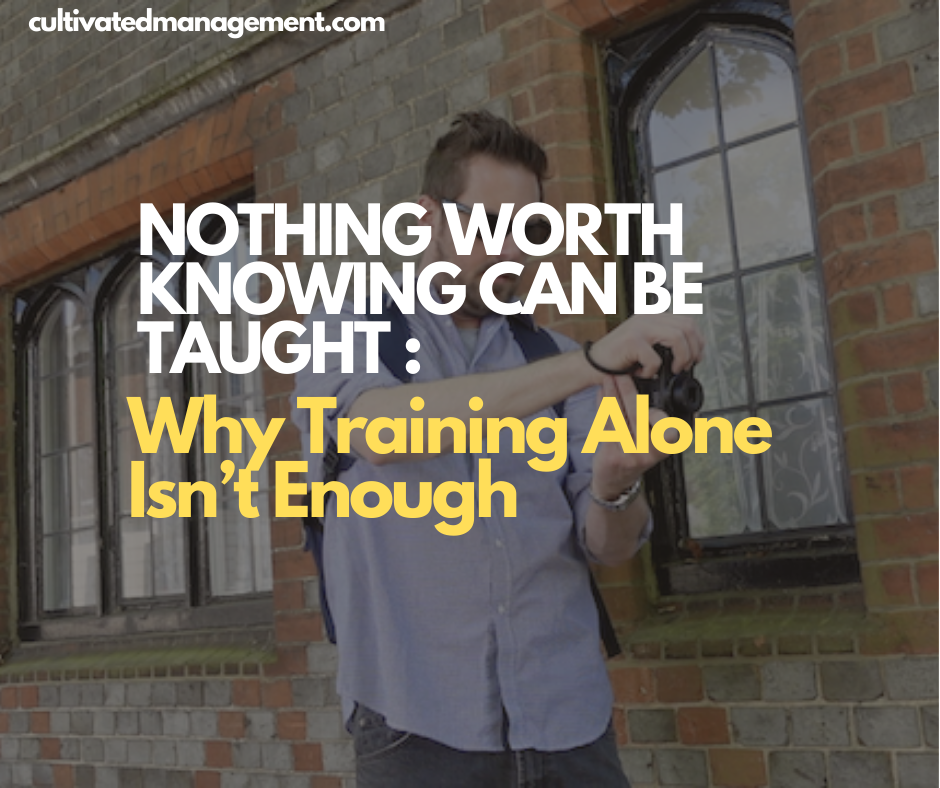
“Nothing worth knowing can be taught.” – Oscar Wilde
I remind myself of this quote when developing competency and skills in my teams. You can teach the basics of any craft, but true mastery comes from doing the work.
- Immerse yourself.
- Tweak and refine.
- Understand nuances.
- Develop your own style.
Knowing the rules lets you know how and when to break them. Self-reflection, practice, and engagement with the activity itself are what truly make you better. Learning is progressive, iterative, and hands-on.
The Two Main Learning Styles
- Information Acquisition – Reading, studying, and consuming knowledge about a skill or trade.
- Task Acquisition – Learning by doing the activity, supported by information and guided by someone skilled.
Many organisations focus heavily on information acquisition, often to meet HR targets. But sitting through courses rarely makes someone competent. Real development comes from practice, guided by skilled mentors.
- Managers get better by managing.
- Marketers get better by marketing.
- Designers, musicians, and artists get better by doing their craft.
👉 Check out this blog post on the two main learning styles.
The Acid Test for Training
As a manager or leader, ask:
- Are your people’s behaviours changing after training?
- Are their competency levels increasing?
- Can they apply what they’ve learned from courses or LMS portals?
If not, the training is likely ineffective, no matter the budget.
👉 Check out this blog post on training and behaviours.
Simple Ideas for Effective Learning
In Your Life:
- Focus on doing the activity and support it with relevant information.
- Don’t rely on consuming information alone.
- Accept the messy middle—learning is rarely linear.
- Persist through difficulties and refine your craft over years.
- Reflect regularly: what went well? What was difficult? What can you tweak?
- Keep a learning journal to track progress and insights.
The curse of knowledge reminds us that what feels obvious now was once learned painstakingly. Recognise your growth and don’t become complacent.
👉 Check out this blog post on how to study effectively.
At Work:
- Own your training as a manager or leader, even if HR facilitates it.
- Ensure training is specific to your team, domain, and problem set.
- Reinforce classroom learning with on-the-job training and mentorship.
- Provide a safe space for practice, experimentation, and feedback.
- Give critical feedback constructively—as John Wooden said, the goal of a coach is to provide insight without resentment.
- Recognise progress often—it motivates and shows care.
- Measure effectiveness: is competency and behaviour actually improving?
Not everyone needs the same training. Focus on behaviour change and skill application, not just consumption of information.
A Zen Perspective
“The wheel smith can’t explain what they spent 20 years learning.”
This aligns perfectly with Wilde: mastery is personal, iterative, and developed through practice. You can teach the basics—but the craft is learned by doing the work.
Takeaway: Information alone doesn’t create competence. Practice, reflection, guidance, and repeated engagement are the real keys to learning and skill development.
